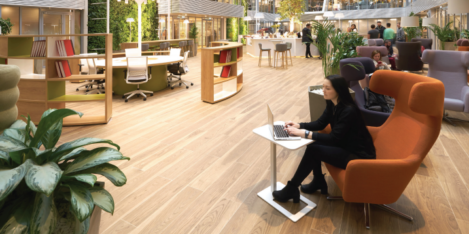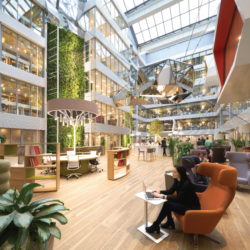To provide the best experiences, we use technologies like cookies to store and/or access device information. Consenting to these technologies will allow us to process data such as browsing behaviour or unique IDs on this site. Not consenting or withdrawing consent, may adversely affect certain features and functions.
The technical storage or access is strictly necessary for the legitimate purpose of enabling the use of a specific service explicitly requested by the subscriber or user, or for the sole purpose of carrying out the transmission of a communication over an electronic communications network.
The technical storage or access is necessary for the legitimate purpose of storing preferences that are not requested by the subscriber or user.
The technical storage or access that is used exclusively for statistical purposes.
The technical storage or access that is used exclusively for anonymous statistical purposes. Without a subpoena, voluntary compliance on the part of your Internet Service Provider, or additional records from a third party, information stored or retrieved for this purpose alone cannot usually be used to identify you.
The technical storage or access is required to create user profiles to send advertising, or to track the user on a website or across several websites for similar marketing purposes.
 One of the many unprecedented things about 2020 is the way that the global COVID-19 pandemic has led to millions of workers around the world staying away from their office or workplace. Either through furlough schemes or temporary ‘working from home’ measures, many people across the job spectrum have had to adapt to a new way of doing things. (more…)
One of the many unprecedented things about 2020 is the way that the global COVID-19 pandemic has led to millions of workers around the world staying away from their office or workplace. Either through furlough schemes or temporary ‘working from home’ measures, many people across the job spectrum have had to adapt to a new way of doing things. (more…)









 A new survey published by
A new survey published by 
 One in five Britons (19 percent) have become ‘kitchen table entrepreneurs’ during lockdown, either starting a business since March or putting plans in place to do so, claims new research by
One in five Britons (19 percent) have become ‘kitchen table entrepreneurs’ during lockdown, either starting a business since March or putting plans in place to do so, claims new research by 
 Employees are longing for purposeful and visible changes to increase safety measures in the office, according to a new survey of 2,000 people from
Employees are longing for purposeful and visible changes to increase safety measures in the office, according to a new survey of 2,000 people from 
 Under-35s are in the midst of a professional confidence crisis, with work seen as a place where they feel isolated and afraid to speak out, claims research carried out by culture change business
Under-35s are in the midst of a professional confidence crisis, with work seen as a place where they feel isolated and afraid to speak out, claims research carried out by culture change business 


 Fairness around office rota decisions and implementation is a top employee concern, claims new research by
Fairness around office rota decisions and implementation is a top employee concern, claims new research by 




 More than 11 million UK working adults have taken time off work for poor mental wellbeing, costing businesses an estimated 40 million working days each year, claims new research from healthcare provider,
More than 11 million UK working adults have taken time off work for poor mental wellbeing, costing businesses an estimated 40 million working days each year, claims new research from healthcare provider, 








September 24, 2020
The magical limits of workplace design
by Mark Eltringham • Comment, Workplace, Workplace design
(more…)